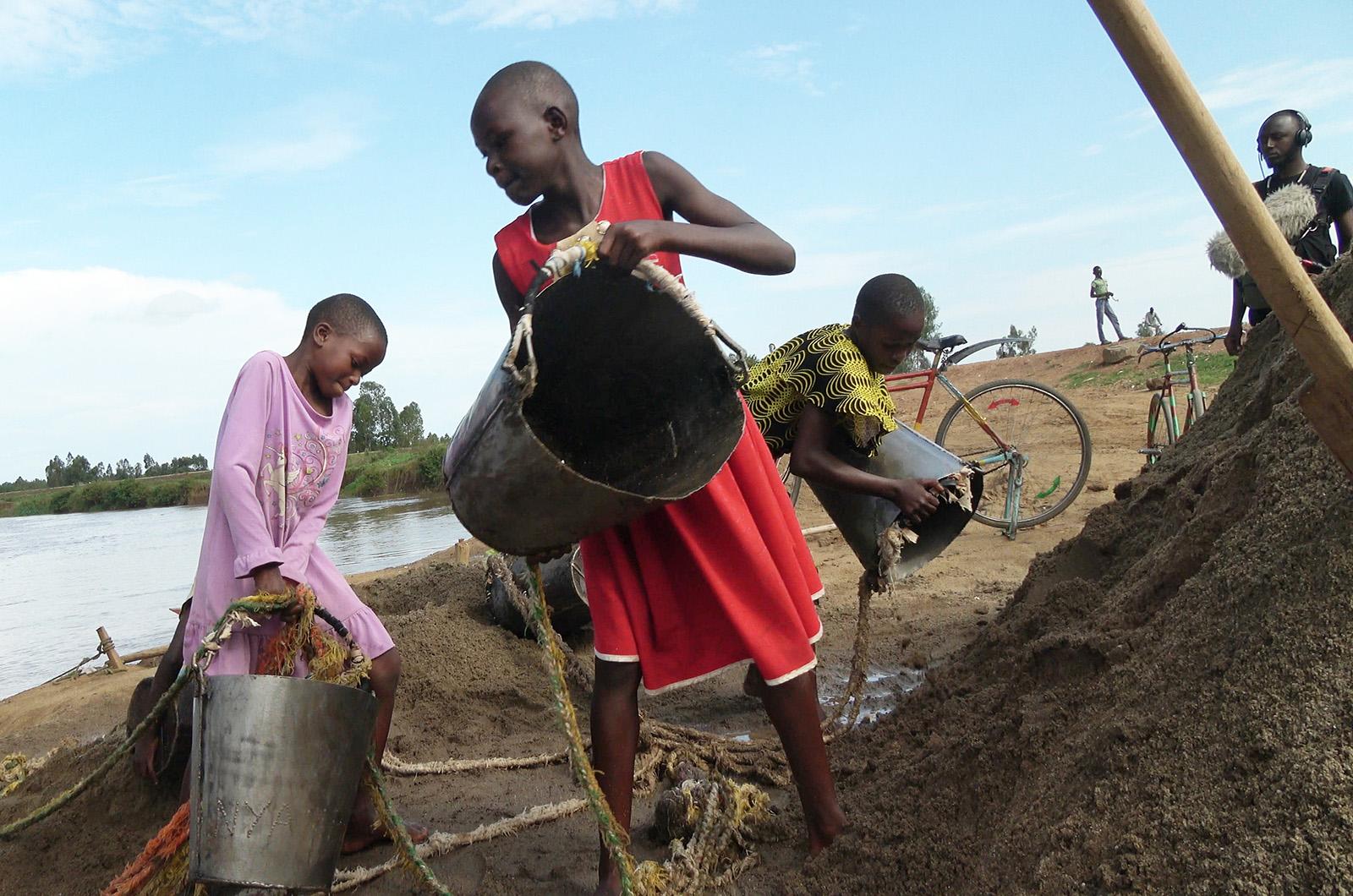The messages from Kenya begin arriving as early as 3 a.m. Notes of appreciation, photos, school transcripts (presented with great pride), project updates on school lunch programs and toilets being built, inventories of medical supplies we have purchased, and small videos of children and women in the most remote corners of Kenya coming together to help one another speak up for their rights.
For the past two years, since we first criss-crossed Kenya filming, we have committed ourselves to the Kenyan School House campaign. During that time, I spent months in Washington, attended dozens of meetings at the government agencies charged with protecting children in the United States and in Africa from exploitative child labor. Each of our appeals was systematically denied. Our Department of Labor dismissed our request to fund Kenyan Schoolhouse with an email, telling me there was no money and that they only fund projects where the people involved have the contacts and experience to do the work.
I was, quite naturally insulted by this treatment. We have run The Kenyan Schoolhouse program for 30 years and helped thousands of children go to school and realize their dreams. But I’m guessing that 30 years on the ground isn’t sufficient experience.
There was another irony at work given that in 2012 I received the Iqbal Masih Award from the same U.S. Department of Labor for my “lifetime commitment and work to end the worst forms of child labor and slavery.”
So yes, it was personal.
I was disappointed but not surprised because for the past 30-plus years of working all over the world, the agencies that are supposed to help feed children, protect children, end trafficking, remove kids from the worst forms of child labor, have never contributed funding to support our work, have never been anywhere near the criminal sites we visit, have never acted on my repeated offers to have them join us in the field and follow up with the help African children deserve. And this holds true for the years we have spent working in Mexico, India, Brazil and across the United States.
Instead, every day what I see are posts on social media showing the leadership of our agencies traveling from Brussels to Taiwan, London to Dubai — posting pictures of meetings they attend where they talk and photograph themselves. Consulting, talking, collecting data, training, more talking — they travel in teams to the world’s most expensive places to talk some more. As they talk, children starve and work for 30 cents a day in goldmines, gravel quarries, sand pits and harvesting the raw products we all consume.
The money spent on global consultation would feed tens of thousands of children. But again, in my final email from the Department of Labor they rejected our proposal for funding by saying they were broke. No money for direct aid, only talk and data. That same week, they announced a $141 million grant to an international data collection firm. It’s good to know how many children are starving on any given day.
So, yes. This is personal. For every child whose childhood slips away while our government congratulates itself, it is very personal. Ask the children.
The neglect of the international community for the children of Africa is best summed up by one data point. In 2022, the World Food Program supplied 55,000 meals in Kenya, a country of 55 million people.
I am used to rejection. I have done this work for 30 years. So any insult I felt lasted about 15 minutes and then it was time to get back to work. Calling to our donor community built on trust for so many years we were somehow able to privately accomplish what amounts to a rescue mission for children caught in the perfect storm of poverty, pandemic and drought. It is personal when your friends, neighbors, the people you know and love, the people you don’t know, send their money and their trust to you to help children they will never meet on the other side of the world.
Today, we are able to share a small fraction of what we have done together. Our seventh documentary feature in 25 years on children’s human rights, Vipi Watoto, is in full production. The title is Kiswahili and means “How are the children?” We are about to undertake our second month-long shoot in Kenya to help answer that question, but this clip will give you a chance to hear directly from the children we’re helping now as they reclaim their childhoods and resume a normal life. At Media Voices, we believe you should always see and hear from the children; they are singular in their stories, hopes, resilience and beauty. They have changed and enriched my life. As poor as they may be, they are inspiring.
You’ll find, if you take a few minutes to view this, that what’s happening today in Kenya and hopefully for years to come, is personal.
Len Morris is the Founder and President of Media Voices for Children. He lives in Vineyard Haven.




Comments
Comment policy »